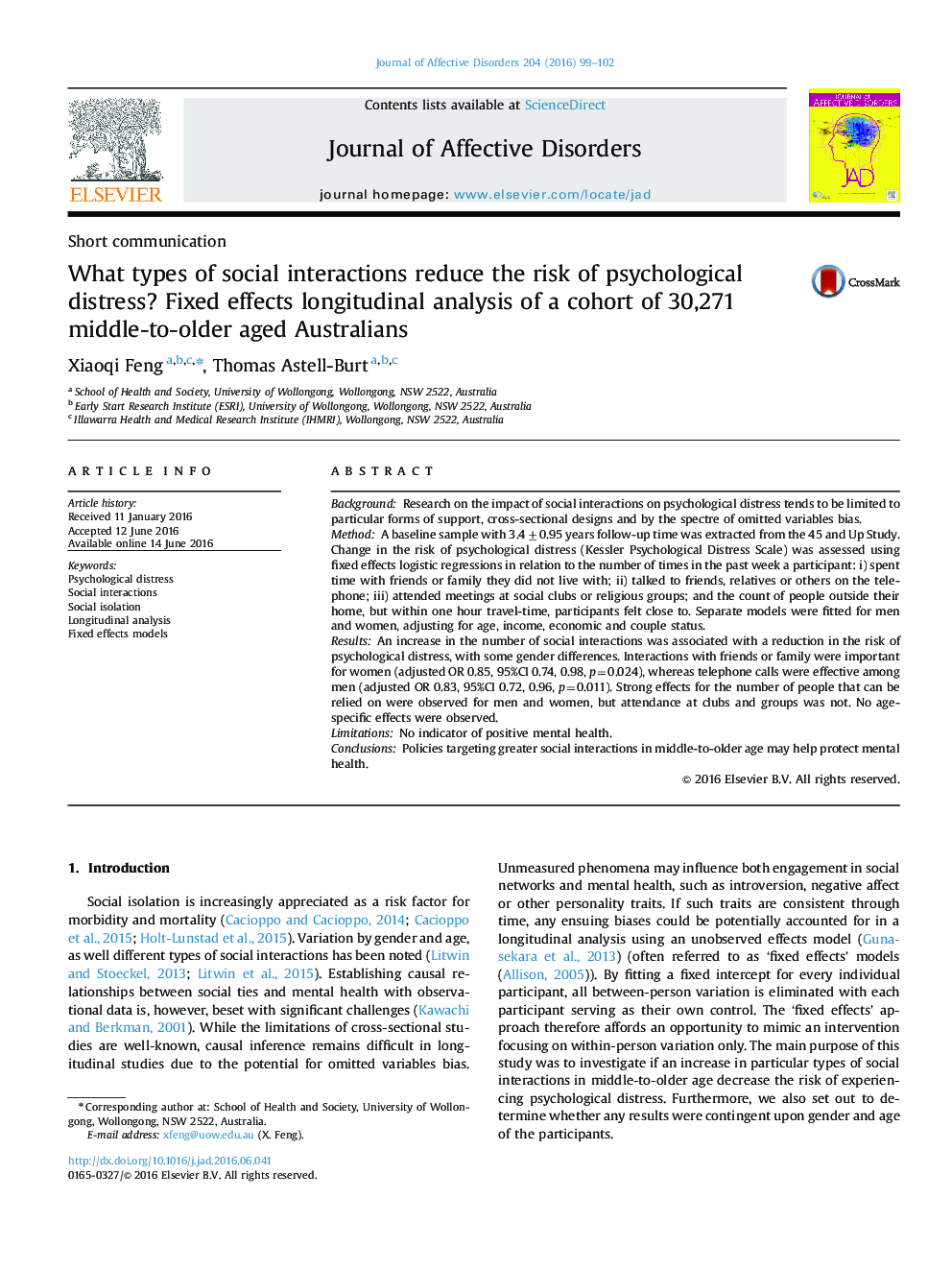| کد مقاله | کد نشریه | سال انتشار | مقاله انگلیسی | نسخه تمام متن |
|---|---|---|---|---|
| 6229593 | 1608121 | 2016 | 4 صفحه PDF | دانلود رایگان |
- An increase in social interactions is protective of psychological distress.
- The number of people that can be relied on are protective for men and women.
- Phone calls are beneficial for men, meeting friends/family more important for women.
- Group and club memberships were not protective for men or women.
- Results were consistent regardless of age.
BackgroundResearch on the impact of social interactions on psychological distress tends to be limited to particular forms of support, cross-sectional designs and by the spectre of omitted variables bias.MethodA baseline sample with 3.4±0.95 years follow-up time was extracted from the 45 and Up Study. Change in the risk of psychological distress (Kessler Psychological Distress Scale) was assessed using fixed effects logistic regressions in relation to the number of times in the past week a participant: i) spent time with friends or family they did not live with; ii) talked to friends, relatives or others on the telephone; iii) attended meetings at social clubs or religious groups; and the count of people outside their home, but within one hour travel-time, participants felt close to. Separate models were fitted for men and women, adjusting for age, income, economic and couple status.ResultsAn increase in the number of social interactions was associated with a reduction in the risk of psychological distress, with some gender differences. Interactions with friends or family were important for women (adjusted OR 0.85, 95%CI 0.74, 0.98, p=0.024), whereas telephone calls were effective among men (adjusted OR 0.83, 95%CI 0.72, 0.96, p=0.011). Strong effects for the number of people that can be relied on were observed for men and women, but attendance at clubs and groups was not. No age-specific effects were observed.LimitationsNo indicator of positive mental health.ConclusionsPolicies targeting greater social interactions in middle-to-older age may help protect mental health.
Journal: Journal of Affective Disorders - Volume 204, 1 November 2016, Pages 99-102
